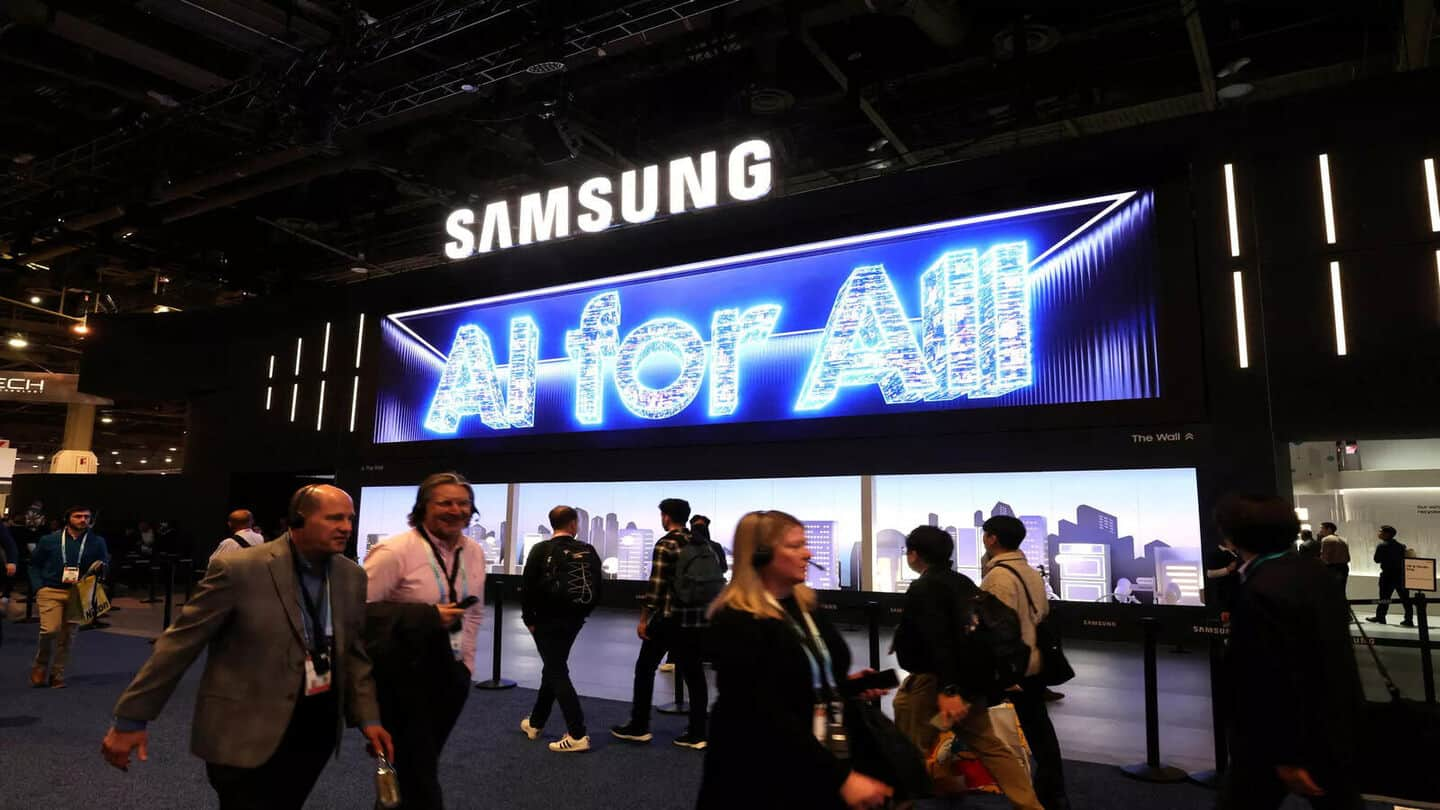
Why Samsung is slipping in the AI chip race
What's the story
Samsung Electronics is witnessing slow sales of artificial intelligence (AI) chips and continued losses in its contract chip manufacturing business.
According to the reports, this may result in a 21% drop in its first-quarter profit, which the company is set to reveal on Tuesday.
The world's top memory chip maker is also undergoing a management transition after the sudden demise of co-CEO Han Jong-Hee last month.
Market challenges
Samsung's struggle in high-end chip market
Since mid-2022, Samsung has been grappling with falling chip profits, lagging behind key rival SK Hynix in delivering HBM chips to NVIDIA.
HBM (High Bandwidth Memory) chips are a type of computer memory designed for fast data transfer and lower power consumption, crucial for applications like AI.
The premium market setback has compelled the South Korean tech giant to rely heavily on Chinese customers looking for less advanced products that aren't impacted by US export restrictions.
Demand decline
AI chip demand from China drops in Q1
NH Investment & Securities senior analyst Ryu Young-ho, estimated that AI chip demand from Chinese customers declined in the first quarter after a surge in the previous quarter amid expected US sales restrictions.
"The share of HBM chips in Samsung's overall DRAM shipments may have declined slightly in the first quarter, leading to an expected decrease in DRAM profitability," he said.
Profit forecast
Samsung's projected Q1 operating profit
Samsung is likely to post an operating profit of 5.2 trillion won ($3.62 billion) for the January-March quarter, LSEG SmartEstimate said.
The number is a decline from the 6.6 trillion won profit posted during the same quarter last year.
Despite the challenges, Samsung is working on a revamped version of its most advanced HBM chips for its key clients.
Price volatility
Profitability impacted by volatile prices
Analysts have observed that Samsung's heavy reliance on commodity chips has rendered its profitability more vulnerable to price fluctuations.
As per TrendForce data, prices of certain DRAM memory chips, widely used in smartphones and PCs, fell by some 25% in the first quarter over the previous year.
Prices for NAND flash chips, used for data storage, dropped by around 50% in the same period.
Manufacturing woes
Contract chip manufacturing business faces challenges
In its contract chip manufacturing business, Samsung could further delay the opening of its new US factory to 2027 from 2026 due to a lack of significant production orders.
This delay is likely to keep its foundry business in the red. Samsung had originally planned to open the plant in 2024.
The estimated Q1 operating profit at Samsung's chip division was 1.7 trillion won, compared with 1.9 trillion won a year ago, according to LSEG data.